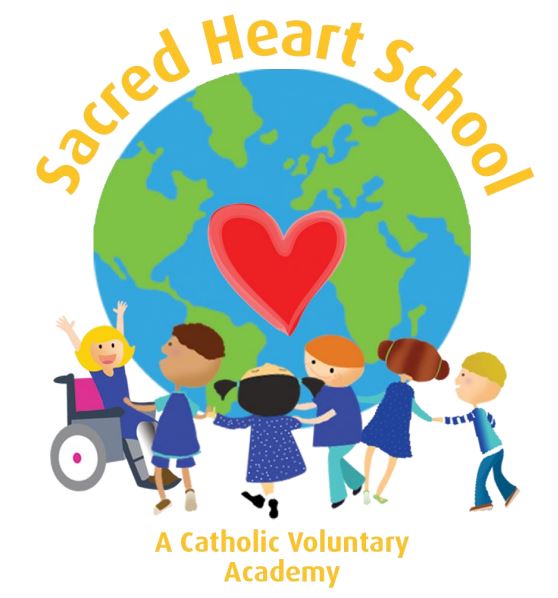Year Five
Mrs Todd is the teacher in our Year Five class. Our PE days are Wednesday and Friday.
Class Saint
 St Therese of Lisieux. Patron Saint of the Missions. Feast day is 1st October.
St Therese of Lisieux. Patron Saint of the Missions. Feast day is 1st October.
Therese was known for being selfish, attention-seeking and spoiled. Therese wished to become a nun from the age of 3. When Therese was 13, she had what she called her 'Christmas Conversion.' In an instant, she stopped being selfish, became determined to help others and radiated joy. At the age of 15, Therese entered the monastery and achieved her dream. Therese is most known for her 'Little Way' - she spoke of doing small things with great love. Therese carried a string of beads and used them to count her good deeds. She believed it is not the greatness of what we do that matters, but the love with which we do them.
St Therese, pray for us.
Autumn Term Curriculum Overview
Maths
- Decimals—tenths, hundredths
- Compare, order, add and subtract numbers with up to 3 decimal places
- Compare amounts of money
- Convert between pounds and pence
- Add prices and calculate change
- Read and write negative numbers
- Multiply 2 and 3-digit numbers by a single-digit number
- Divide 2 and 3-digit numbers by a single-digit number
English
This term, we will be studying The Firework Maker’s Daughter. We will be learning about:
- Relative clauses
- Inferences and justifying with evidence
- Language and the impact on the reader
- Semi-colons
- Parenthesis - brackets, dashes, commas
- Speech marks
RE
Creation and Covenant
- Retell the Moses story (Burning Bush / 10 Commandments)
- Describe what a covenant is
- Show how the Ten Commandments help us
- Describe sin
- Know that a virtue is a positive habit
Prophecy and Promise
- Jesus as the fulfilment of the promise to David
- Recognise that David is a model of prayer
- Know that the Rosary is a prayerful reflection on the life of Christ
History
|
|
Y5 will be studying 1930s Germany and the Rise of the Nazi Party.
Key learning includes:
- An understanding of discrimination and prejudice
- To know that after WW1, in Germany, there was prejudiced thinking towards Jewish people.
- To know the implications of the Nuremberg Laws on Jewish people
- To know that the life of children changed in 1930's Germany
- To know about Kindertransport
Science
The movement of the Earth and other planets
The movement of the moon
Describe Earth’s rotation to explain day and night
Gravity, air resistance, water resistance and friction
Levers, pulleys and gears
Design and Technology
Pulleys and Gears
Generate innovative ideas by carrying out research. Develop a simple design specification. Develop and communicate ideas through discussion, annotated drawings, exploded drawings and drawings from different views. Produce detailed lists of tools, equipment and materials. Formulate step-by-step plans. Select and use a range of tools and equipment. Compare the final product to the original design specification. Test products with the intended user and critically evaluate the quality. Consider the views of others to improve their work. Investigate relevant famous manufacturing and engineering companies. Understand that mechanical and electrical systems have an input, process and an output. Understand how gears and pulleys can be used to speed up, slow down or change the direction of movement.
PE
Netball
Explore attacking skills. Develop movement skills to lose a defender. Move into space. Communicate with the team. Defend an opponent. Intercept. Apply skills to a game.
Dance
Copy and repeat movements. Work with a partner. Work in a group to choreograph a dance. Consider dynamics, space and relationships. Use matching, canon and unison.
Computing
Creating Media - Video Production
Explain what makes a video effective. Capture video using a range of techniques. Create a storyboard. Reshoot and edit.
Music
Exploring rhythmic layers
Develop understanding of rhythm and rhythmic notation. Time signatures, learning to ‘feel’ the difference between three and four beats in a bar. Explore folk traditions such as Morris dancing and Basque dance. Choose suitable timbre and dynamics when playing and composing. The importance of following the conductor. Learn how composers create interesting textures by combining layers of musical sound. Identify the use of ostinato in pieces and use ostinato to accompany songs, creating interesting polyrhythmic textures. Explore ways to represent musical textures through notation.
French
Greetings, days of the week, how people are and what they are like
Personal Development
Anti-Racism - Talking about race and racism, Defining anti-racism, Redefining anti-racism, Understanding racial socialisation and stereotypes
Me, My Body, My Health - Similarities and differences between people. Types of families. Self-confidence. Girls' bodies and changes during puberty. Boys' bodies and changes during puberty. Healthy lifestyles.

